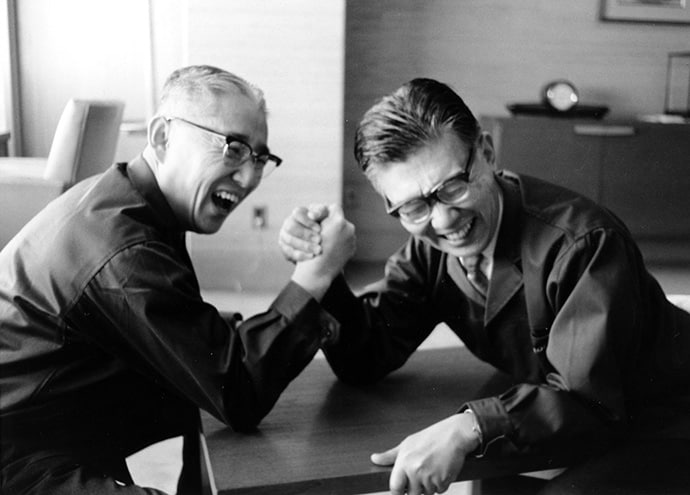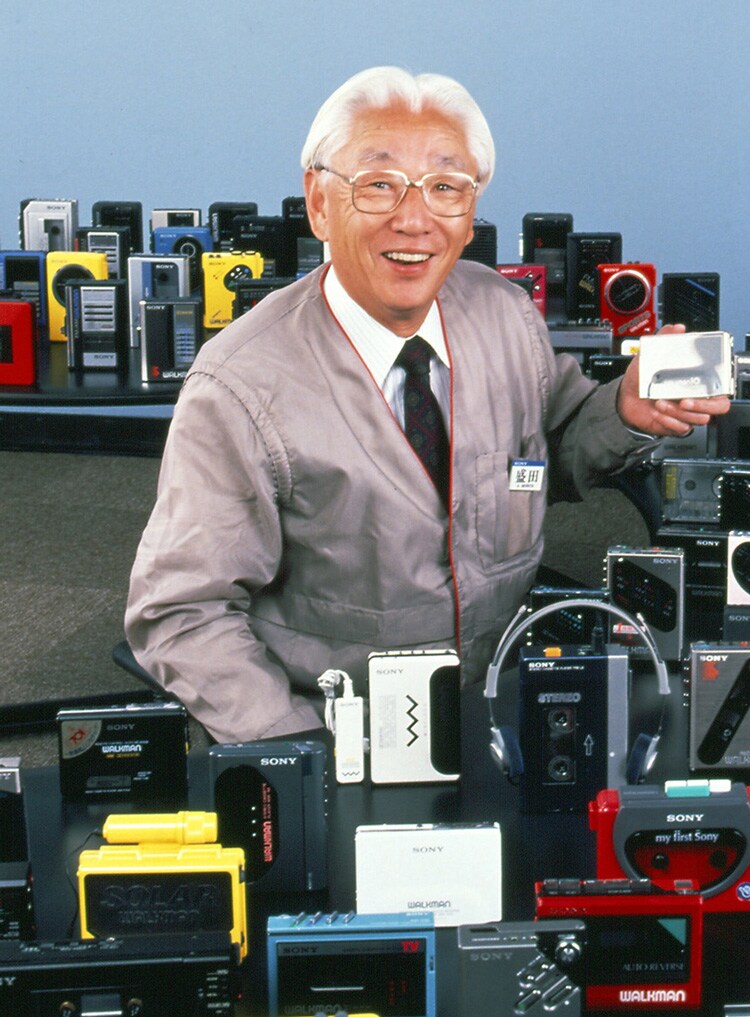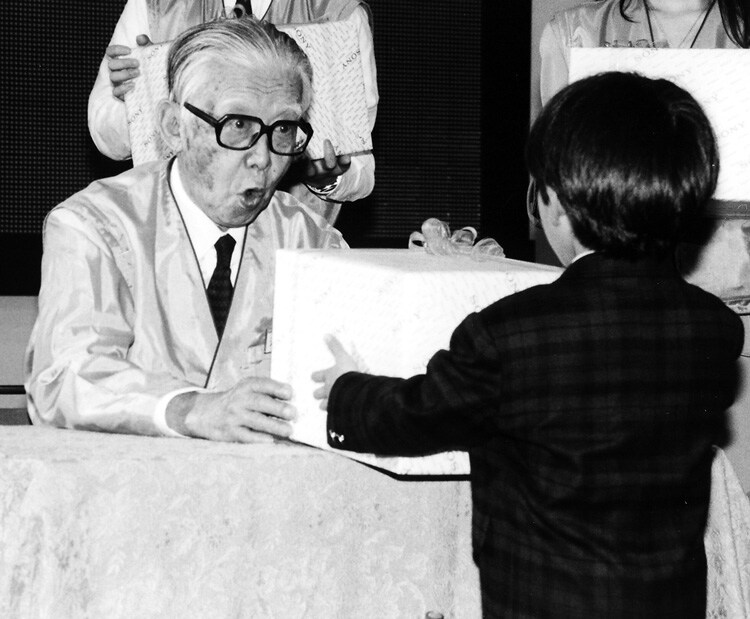Carrying on the Sony Spirit
"We want to use our technology for the benefit of the world."
Inspired by this ideal, Sony founder Masaru Ibuka and his colleagues started out by working to support people after the war, repairing radios and developing converters for listening to shortwave news broadcasts, at the research laboratory that would lead to the formation of their own company.
This year, 75 years after the establishment of Tokyo Tsushin Kogyo, Sony has changed its name to Sony Group Corporation and embarked on a new management structure.
In this blog, we will look back on the philosophies of Masaru Ibuka and Akio Morita, and the history of Sony over the last 75 years, to see how the Sony Spirit, which has been handed down from the founders to successive generations of management and employees, has guided us to this point and will continue to guide us into the future.

"Do what no one else will do"
Doing what no one else will do may seem easy, but it requires tremendous courage, making it very difficult. What's more, whatever you do has to contribute to people's lives. Innovation must have a major impact. It has to be something with huge benefits, bringing happiness to people. (MASARU IBUKA / Onboarding event for new employees 1981.04)
When we think about how we can survive. I think the one and only path toward survival is to maintain our uniqueness. I believe making and giving birth to unique products is what will open up a path toward our future. (AKIO MORITA / Internal conference 1982.11)
In 1979, Morita launched the first-generation Walkman®, overcoming internal objections that it would not sell without a recording function. However, as Akio Morita believed, "The music you have at home and in your car is gone once you step outside. This is the product that fills that need." His intuition was right, and the Walkman® became a record-breaking hit, revolutionizing the way people listen to music. The spirit of "do what no one else will do" is still alive and well at Sony today, with employees taking on new challenges all around the world.

"Open a new path"
Sony's destiny is to expand throughout the world. It's fate, and it's the path that we must take. (AKIO MORITA / Internal conference 1981.05)
One of the decisions Sony made in order to expand its business globally was to become the first Japanese company to be listed on the New York Stock Exchange, in 1970. Ever since, Sony has engaged with investors around the world and continued to strengthen its interaction with capital markets in the U.S., a global leader in the entertainment industry, bringing about the diversification of Sony's business beyond electronics and into the entertainment arena with music, pictures and games. This history forms the foundation of the Sony Group's identity as a "creative entertainment company with a solid foundation of technology."

"Contribution to society"
When we established the company, what was written in the Founding Prospectus was that one day, when the business began doing well and we started making a profit, we would contribute to society through work other than our business. Social contribution has been a part of the corporate philosophy from over 40 years ago. It's the wrong attitude to contribute only when you make a profit. The philosophy that we have a duty to contribute to our society even when we are not profiting should be commonly accepted. (MASARU IBUKA / Interview 1991.05)
Masaru Ibuka had long believed that the promotion of science and technology was important for Japan, which had few resources during the postwar reconstruction period, to shine on the global stage. Therefore, in order to encourage children to develop a love for science, he began providing educational grants to schools that engage in advanced science education in 1959. More than 60 years later, these activities are still ongoing under the Sony Education Foundation (PDF 1.33MB).
(The photo shows the school bag presentation ceremony, which began in 1959 and continues to this day, to celebrate employees' children entering elementary school.)

Today, under the slogan "For the Next Generation," Sony continues to leverage its products, content, technology, talent, and partnerships to develop activities for social contribution around the world. Sony aims to contribute to the resolution of various global issues through educational support activities for children, emergency relief in the event of disasters, and a host of various activities tailored to the needs of each region. Recent initiatives include the "Sony Global Relief Fund for COVID-19" (established in April 2020), which provides support to those affected by the pandemic around the world, and activities to promote social justice and anti-racism initiatives, which were introduced in our previous blog. In 2020, Sony also launched a new educational program called "CurioStep with Sony" to nurture children's curiosity, which is being introduced in various parts of the world.
"Looking forward to the future"
Finally, we would like to share a part of a lecture Masaru Ibuka gave at International Christian University in 1960.
In this lecture, given more than half a century ago, Ibuka was looking ahead to a future in which AI permeated our daily lives, and mentioned the possibility of its future use in automated driving and medical applications
It is perhaps inevitable that the Sony Group, which has inherited the spirit of its founders, is engaged in initiatives from developing the world's first image sensor with AI processing functionality, to VISION-S, which aims to contribute to the evolution of mobility, a megatrend for the future. Sony AI, which was established in April 2020, is engaged in AI research and business development as part of its mission to "unleash human imagination and creativity with AI," while drawing on expertise from across the Sony Group.

